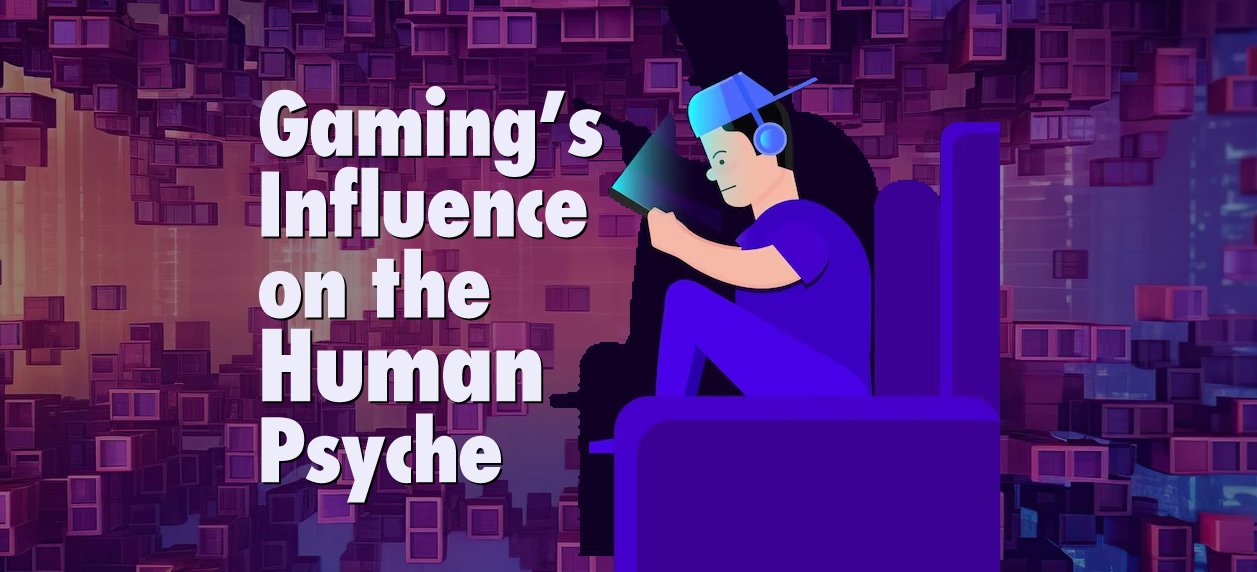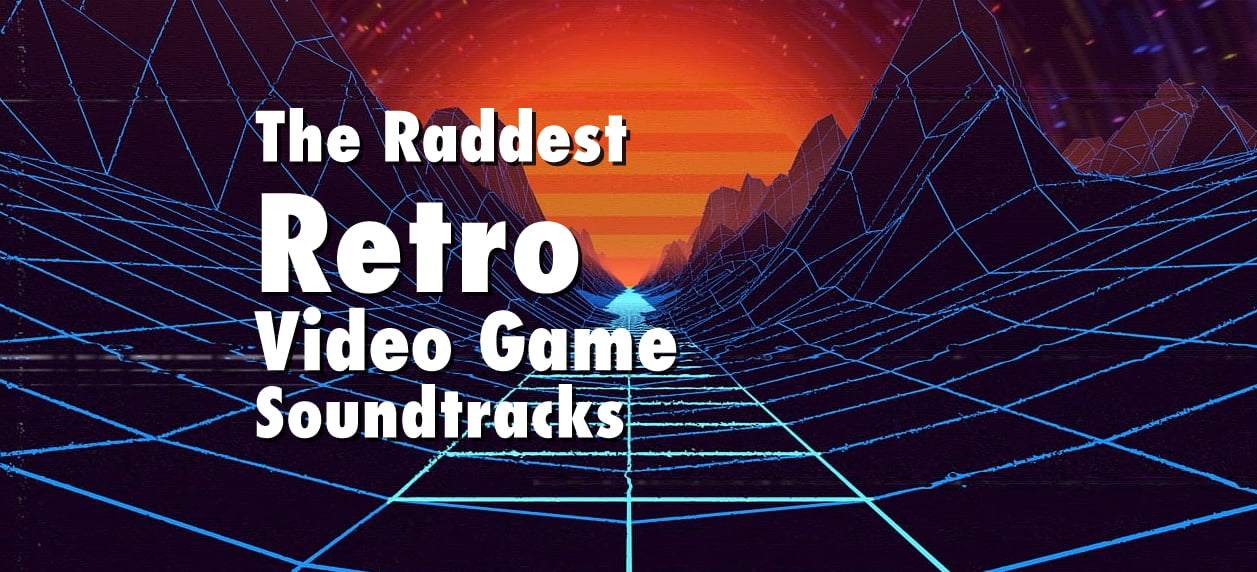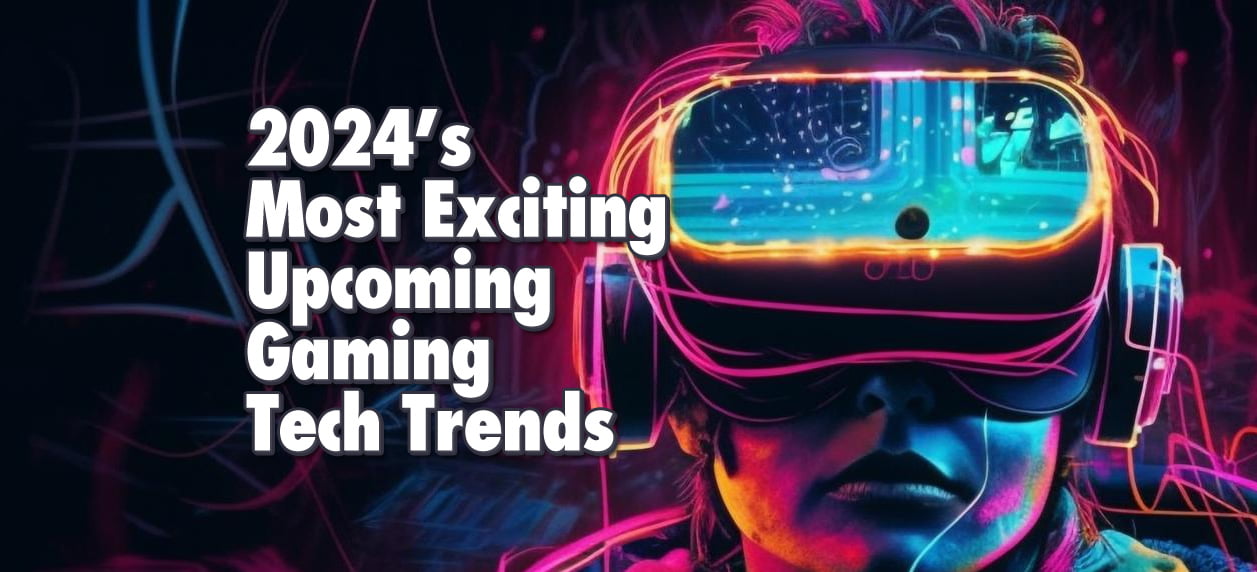Greetings, fellow seekers of virtual wonders and pixelated adventures! Grab your energy drinks as we embark on an epic quest to decipher the intricate connections between video gaming and the human mind.
Table of Contents
We're about to dive deep into the realms of gaming from a psychological perspective, refer relevant scientific studies, analyze benefits of gaming and potential risks as well and maybe, just maybe, level up our understanding along the way.
The Quest for Glory: Why We're Hooked on Games
Why do we plug in and power up? Well, it's a blend of curiosity, challenge, and pure unadulterated fun. Picture this: you're navigating Mario through the Mushroom Kingdom, dodging Goombas like a seasoned pro. It's not just about saving the princess; it's about that heart-pounding adrenaline rush that makes you feel alive, even if you're sitting on your couch.
Ever heard of the “Achievement Unlocked” dopamine boost? That's the magic potion behind our gaming fascination. Whether it's reaching a new high score, unlocking a rare skin in your favorite FPS, or finally conquering that impossibly difficult boss battle, our brains are wired to adore those virtual trophies.
The Chronicles of Pixels and Play: A Brief History
To truly grasp the power of gaming, let's journey back to the retro realms of the '70s and '80s. Imagine a time when Pong was the ultimate ping-pong showdown, and Space Invaders had us defending the Earth from pixelated alien invaders. Fast forward to the '90s, and the console wars were in full swing, with Sega Genesis and Nintendo's Super Nintendo Entertainment System (SNES) duking it out for supremacy.
Then came the monumental shift – the birth of 3D gaming. Sony's PlayStation burst onto the scene, introducing us to a world where polygons ruled. And let's not forget the N64, a treasure trove of golden classics like Super Mario 64 and The Legend of Zelda: Ocarina of Time. These consoles weren't just hardware; they were time machines that transported us to new dimensions.
Power-Ups and Perks: Unveiling the Benefits of Gaming
Now, let's talk about the real magic behind the screens – the benefits. Brace yourselves, because there's more to gaming than meets the eye.
First off, we're talking about the Jedi-like reflexes you gain from all those hours of quick decisions and lightning-fast reactions. Just think of how your thumb dances across the buttons as you unleash a devastating combo in Mortal Kombat.
Unlocking the Treasures of Benefits in Gaming: Beyond Entertainment
The realm of gaming is not merely a pixelated playground for entertainment; it is a treasure trove of cognitive, social, emotional, and even therapeutic benefits that often go uncelebrated. In the next chapters, we embark on a quest to unearth these hidden gems, shedding light on the myriad ways in which gaming enriches our lives.
Cognitive Fortitude: Sharpening the Mind
First and foremost, gaming serves as a crucible for cognitive development. The challenges presented in video games demand an array of mental faculties, from problem-solving and critical thinking to spatial awareness and strategic planning. Consider the intricacies of a game like “Portal,” where players must navigate complex puzzles by manipulating space and physics. Such games are digital boot camps for the brain, honing skills that extend far beyond the virtual realm.
Research, such as the study conducted by Green and Bavelier published in “Nature” (2003), has demonstrated that action video games can enhance various aspects of visual attention and spatial cognition. These findings have intriguing implications for improving real-world skills, including those required in professions such as surgery and aviation.
The Art of Adaptability: Navigating Virtual Worlds
In the vast landscapes of virtual worlds, gamers cultivate adaptability and resilience. They face unforeseen challenges, adapt to rapidly changing circumstances, and learn to thrive in unpredictable environments. This adaptability extends beyond the gaming console, shaping individuals into more flexible problem-solvers and decision-makers in their everyday lives.
Consider the trials of a player in a survival game like “The Long Dark.” In this icy wilderness, one must contend with harsh weather conditions, resource scarcity, and wildlife threats. Surviving in this digital tundra requires resourcefulness and adaptability, skills that can translate to resilience in real-world adversity.
Enhanced Memory and Improved Attention: The Cognitive Toolkit
Gaming not only challenges cognitive abilities but also enhances memory and improves attention. Action video games, characterized by their fast-paced gameplay, demand split-second decision-making and heightened vigilance. This not only improves short-term memory but also boosts the ability to maintain focus amidst distractions.
In a study published in “Psychological Science” (2013), it was found that playing action games led to improvements in working memory and cognitive flexibility. Gamers displayed enhanced attentional control, allowing them to switch between tasks more efficiently. These cognitive benefits ripple into various aspects of daily life, from academic performance to workplace productivity.
The Bonds of Fellowship: Community and Connection
Gaming is not a solitary pursuit; it is a social tapestry woven by players across the globe. Online multiplayer games, from massive online role-playing games (MMORPGs) to team-based shooters, serve as platforms for forging friendships and fostering teamwork. The collaborative nature of these games cultivates a sense of camaraderie and encourages effective communication.
Consider the camaraderie formed by players in “World of Warcraft” raiding guilds. Team members strategize, coordinate attacks, and celebrate victories together. These virtual bonds can extend into the real world, strengthening social connections and teaching players the value of cooperation.
Empathy and Understanding: Walking in Another's Shoes
Gaming has the remarkable power to nurture empathy and encourage players to see the world through different perspectives. Story-driven games, such as “The Last of Us” or “Life is Strange,” immerse players in emotionally charged narratives, forcing them to make decisions that impact the lives of virtual characters. This experience fosters empathy as players grapple with moral dilemmas and their consequences.
In the research conducted by Tobias Greitemeyer and Silvia Osswald (2010) found that playing prosocial video games increased players' helpful behaviors in real life. Games that encourage empathy and cooperation can inspire players to carry these virtues beyond the screen, making the world a more compassionate place.
Therapeutic Potential: Battling Depression and Reducing Stress
Beyond cognitive and social benefits, gaming also holds therapeutic potential. Numerous studies have explored the use of video games in treating depression and reducing stress. Games that incorporate relaxation techniques, mindfulness, and positive psychology principles can provide players with effective tools for managing mental health.
Beyond Pixels and Scores
As we continue to explore the benefits of gaming, let us recognize that the treasures found in pixels and polygons extend far beyond the virtual realms. Gaming is a bridge that connects the virtual and the real, enriching our lives with cognitive fortitude, social bonds, enhanced memory, improved attention, and the capacity for greater empathy. Whether in times of leisure or therapeutic need, gaming has the potential to unlock new dimensions of personal and social well-being.
Leveling Up: When Gaming Makes Us Better
Alright, time to delve into the nitty-gritty – how does gaming actually make us better? Imagine you're embroiled in a raid with your World of Warcraft guild. Coordinating attacks, healing teammates, and strategizing on the fly – that's teamwork and communication skills in their prime. In-game collaboration often spills into the real world, making you a better team player on the job or in school projects.
Then there's the phenomenon of “flow.” Ever been so immersed in a game that you lost track of time? That's the sweet spot where you're fully engaged, honing your focus and boosting your creativity. It's the digital equivalent of meditation – a mental recharge that leaves you feeling refreshed and ready to conquer.
Gaming's Influence on the Teenage Psyche: The Labyrinth of Benefits and Pitfalls

As we delve deeper into the labyrinth of gaming's influence on the human psyche, it's crucial to illuminate the unique path that teenagers tread. This age group, teetering on the precipice of adolescence, is particularly susceptible to the enchantments and perils of gaming. We'll explore the alluring benefits, the dangers of overplaying, the conditioning of social behaviors, and the contentious issue of violence in modern video games. To chart this terrain, we'll rely on scientific studies, real-life case studies, and examples from the gaming cosmos.
The Allure of Gaming for Teenagers: Benefits and Learning
For teenagers, gaming offers a captivating journey filled with learning experiences and a sense of belonging. Educational games, such as “Kerbal Space Program,” have been celebrated for their ability to ignite an interest in science and engineering. These games blur the line between education and entertainment, making learning engaging and enjoyable.
Furthermore, online multiplayer games like “Fortnite” and “Minecraft” facilitate social connections. The digital playgrounds they provide enable teenagers to bond with friends, both old and new, fostering a sense of camaraderie. Research conducted by the Pew Research Center (2018) indicates that 72% of teenagers play games with friends online, demonstrating the social magnetism of gaming.
Social Behaviors in the Digital Age: Conditioning and Connection
In the digital age, where friendships can exist as avatars and emotes, social behaviors are subject to conditioning through gaming. The online environment, replete with anonymity and competition, can sometimes cultivate behaviors that wouldn't manifest in face-to-face interactions.
A study published in “Pediatrics” (2016) explored the connection between gaming and cyberbullying among teenagers. It revealed that excessive online gaming could contribute to cyberbullying behaviors, emphasizing the need for parents and educators to monitor and guide teenagers in their virtual interactions.
Modern Video Games: The Contentious Issue of Violence
Now, let's journey into the heart of a contentious issue: violence in modern video games. Titles like “Grand Theft Auto” and “Call of Duty” have sparked intense debates regarding their potential effects on teenagers' behavior. Concerns abound that exposure to violent virtual scenarios may desensitize players to real-world violence.
However, the relationship between video game violence and real-life aggression remains a topic of extensive research and debate. A study published in “JAMA Pediatrics” (2019) examined the link between violent video games and aggression among adolescents. The findings suggested a modest, yet statistically significant association between exposure to violent games and aggressive behavior. However, it's crucial to note that this relationship is complex and influenced by various factors.
In contrast, some argue that gaming serves as a cathartic outlet, allowing teenagers to vent their frustrations in a safe, virtual environment. The “frustration-aggression hypothesis,” posited by Bandura (1973), suggests that aggression is more likely to occur when individuals are prevented from reaching their goals. Video games may provide an alternative avenue for releasing pent-up aggression.
The Way Forward: Navigating the Gaming Odyssey
As we navigate the ever-evolving gaming landscape, it's imperative to strike a balance between the benefits and potential dangers. Parents, educators, and teenagers themselves play a pivotal role in charting this course. Encouraging open communication about gaming habits, setting reasonable time limits, and fostering a healthy blend of offline and online activities are essential steps.
Gaming's influence on the teenage psyche is a multifaceted journey filled with both promise and peril. Scientific studies offer insights into the complex relationship between gaming and behavior.
Real-life case studies underscore the need for balance and vigilance. As teenagers navigate the gaming odyssey, let us guide them toward a realm where the pixels shine brightly, but the real world shines even brighter.
Gaming and Stress: The Intricate Dance of Escapism and Relief
In the realm of gaming, the relationship with stress is a multifaceted dance that players often find themselves entangled in. While gaming can serve as a form of escapism from the trials and tribulations of daily life, it also has the power to offer a unique brand of stress relief. In this chapter, we'll delve into the complexities of this relationship, exploring how gaming can both contribute to and alleviate stress.
Escapism in the Digital World: A Refuge from Reality
For many, gaming provides a sanctuary from the stresses and pressures of the real world. The immersive nature of video games allows players to temporarily shed their worries and step into alternate dimensions where they have control and agency. In these virtual realms, they become heroes, adventurers, or strategic masterminds, transcending the limitations of their everyday lives.
Consider Sarah, a college student burdened by the demands of exams and coursework. In her favorite role-playing game, she assumes the role of a fearless warrior, battling dragons and unraveling epic quests. The game becomes a haven where she can momentarily escape the anxiety and stress associated with her academic responsibilities. Sarah's story mirrors the experiences of countless gamers who turn to their consoles or PCs as a means of psychological respite.
Stress Relief Through Immersion: The Gaming High
Paradoxically, gaming also offers stress relief through the very challenges it presents. The rush of adrenaline during intense moments in a game can evoke a sense of excitement akin to a rollercoaster ride. This adrenaline surge, while initially perceived as stress, transforms into a rewarding thrill upon conquering challenges. It's the exhilarating feeling of a “level-up” or a hard-fought victory that provides a unique form of stress relief.
In fact, scientific studies have delved into the physiological effects of gaming. Research published in the journal “Psychophysiology” (2013) found that playing action video games can lead to reduced levels of cortisol, a hormone associated with stress. The study suggested that the heightened engagement and focus demanded by gaming can contribute to decreased stress responses.
Moderation is Key: Balancing Stress Relief and Addiction
However, like any coping mechanism, gaming's stress-relief potential comes with a caveat. The line between occasional stress relief and gaming addiction can be perilously thin. While gaming can provide an escape from stress, excessive gameplay can become a source of stress itself, especially if it interferes with responsibilities, relationships, or overall well-being.
Consider the cautionary tale of Mark, a young professional who turned to gaming as an escape from a high-stress job. As he delved deeper into virtual worlds, he neglected his work and personal relationships, leading to increased stress in his life. Mark's story highlights the importance of maintaining a healthy balance between gaming and real-world responsibilities.
The Gaming Tightrope
In the intricate dance of gaming and stress, finding equilibrium is paramount. Gaming can indeed offer respite from the pressures of life and even provide a unique form of stress relief through immersion and challenge. However, moderation and self-awareness are key to reaping these benefits without falling into the abyss of addiction and heightened stress.
As gamers navigate this tightrope, it's essential to recognize when gaming serves as a helpful escape and when it becomes a stress-inducing burden. With the right balance, gaming can be a therapeutic ally, providing moments of respite and exhilaration in the grand adventure of life.
Balancing Act: Mastering the Game of Life and Play
Hold your warp pipes, because we've got to address the balancing act. Excessive gaming, like any potion taken in excess, can lead to negative effects. The “Gamer's Gaze,” where you're locked onto a screen for hours, can strain your peepers and give you the dreaded “gamer squint.” And let's face it, too many all-night gaming sessions can morph you into a creature of the night, leaving you as pale as a vampire.
But don't worry! We can overcome these obstacles, just like any hero would. Set time restrictions, incorporate eye exercises and stretching during loading screens, and keep in mind that the real world also has some very spectacular quests in store for you.
Pixels, Play, and Progress: Final Thoughts
In the grand mosaic of life, gaming is more than a mere pastime; it is an instrument for personal growth, social connection, and even mental well-being. The cognitive challenges presented in games sharpen the mind, teaching adaptability and resilience. The virtual communities forged in the gaming world nurture friendships and teamwork, while story-driven games instill empathy and understanding.
Gaming is a bright thread that has woven itself into our culture and intellect, weaving itself into the enormous tapestry of our existence. The adventure of a lifetime that the power of pixels creates, along with the thrill of victory and the lessons of defeat, is unlike any other.
So let's continue our voyage with an open mind and a controller in hand, fellow gamers and pixel pioneers. We embrace the virtual playgrounds and the insights they provide as the pixels begin to glow and the soundtrack begins to play.
It's time to press start and embark on the next chapter of our epic adventure.




